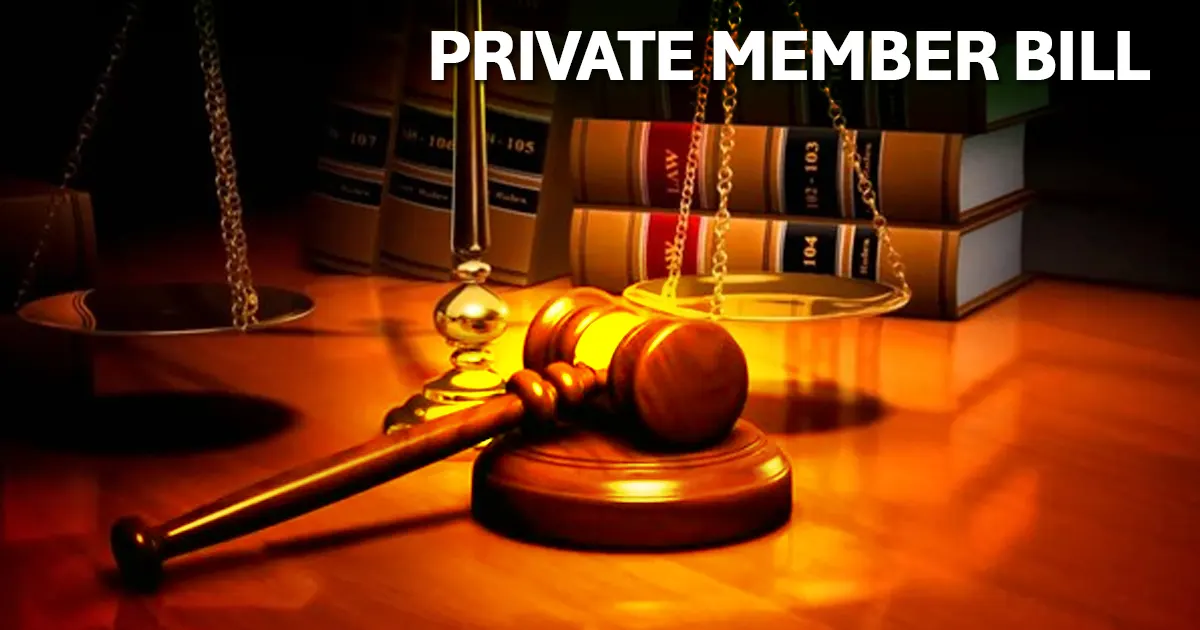GS 2 – POLITY

A Private Member Bill is a legislative proposal introduced in Parliament by a member who is not a minister. It reflects individual or opposition viewpoints rather than the official policies of the ruling government.
Types of Bills in Parliament
- Public Bill: Introduced by a minister; reflects the policies of the government.
- Private Member Bill: Introduced by a non-minister member of Parliament.
Differences Between Public and Private Bills
| Aspect | Public Bill | Private Bill |
| Introduced by | A Minister | Any non-minister Member of Parliament |
| Policy Reflection | Represents government policies | Represents individual or opposition standpoints |
| Approval Chances | Higher | Lower (only 14 have been enacted into law since independence) |
| Impact of Rejection | May lead to a vote of no confidence | No impact on parliamentary confidence |
| Notice Requirement | 7 days | 1 month |
| Drafting Responsibility | Concerned government department | Individual member introducing the bill |
Significance of Private Member Bills
- Highlight Issues: Focus on matters neglected by government bills.
- Address Legislative Gaps: Propose changes to bridge shortcomings in existing laws.
- Expression of Individual Views: Provides MPs a platform for independent initiatives, free from party constraints.
Key Facts
- Constitutional Amendments: Private members can propose amendments to the Constitution.
- Limitations: Cannot introduce Money Bills.
- Historical First: The Muslim Wakf Bill, 1952, was the first private member bill passed in Parliament.
- Decline in Success: No private member bill has been passed since 1970.
Challenges Faced by Private Member Bills
- Limited Parliamentary Time: Private member bills are usually considered only on Fridays, leaving insufficient time for debate.
- Lower Priority: Public bills introduced by the government take precedence.
- Low Success Rate: Few private member bills reach the final stages of passage.
Private member bills remain an essential tool for MPs to raise pertinent issues and propose legislative solutions, despite the challenges in their enactment.
[box] “Discuss the significance of Private Member Bills in the Indian parliamentary system. Highlight the challenges faced by such bills in gaining legislative approval.”
[button color=”purple ” size=”medium” link=”https://forms.gle/Wzz7M6oVE4bQS8Ws8″ icon=”” target=”true”]Upload Answer[/button]
[/box]




